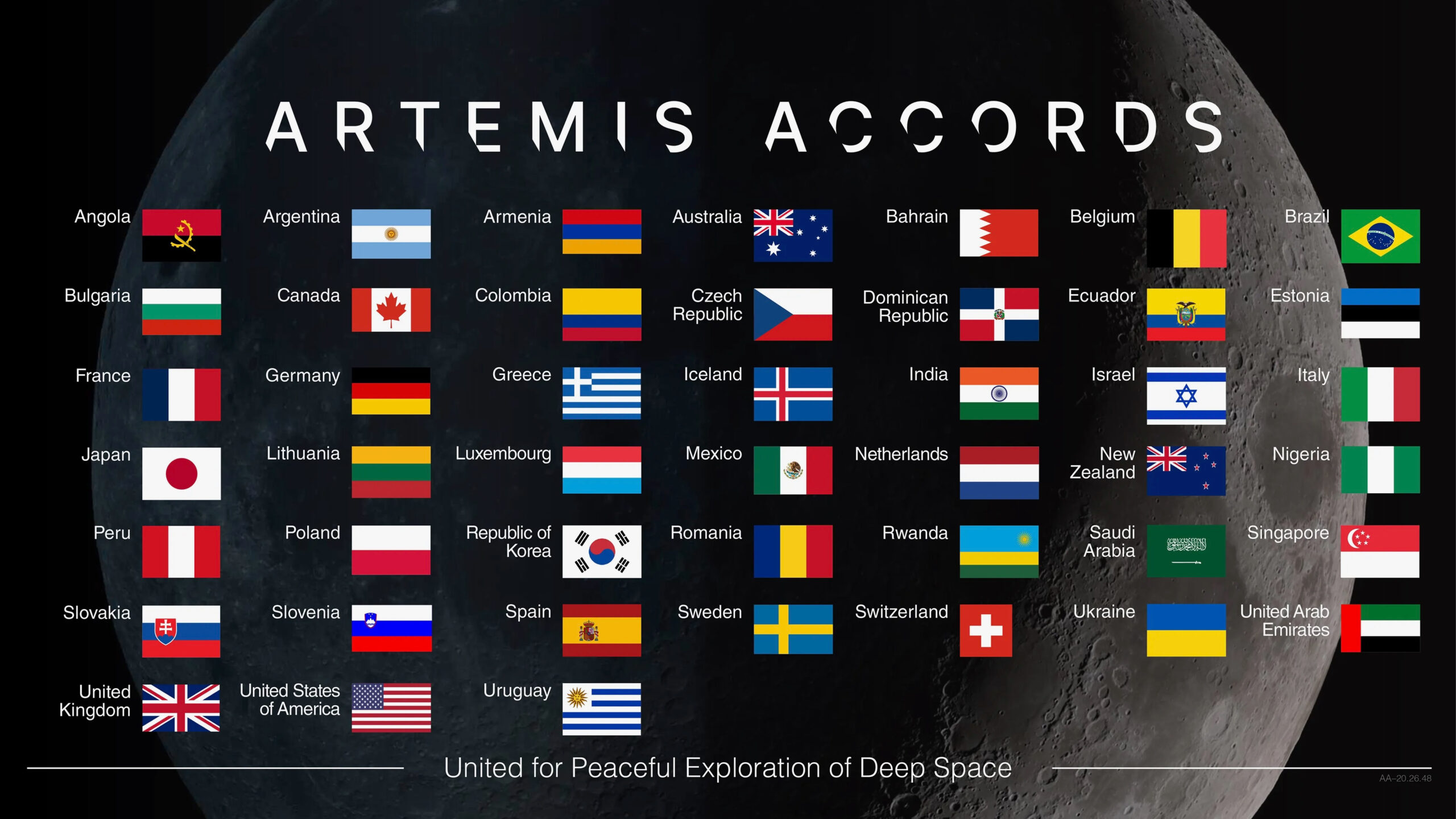The Artemis Accords, a set of principles guiding space exploration, have welcomed a new member – Estonia. This coalition of nations aims to promote common practices and outreach efforts for lunar missions. With the accords now signed by 45 countries, the focus shifts to engaging emerging space powers in Asia and Africa to join the collaboration. The article highlights the key outcomes of the recent Artemis Accords meeting, including plans for technical workshops and efforts to address challenges like lunar dust and space debris. This blog post explores the significance of Estonia’s participation and the Artemis Accords’ broader goals of fostering international cooperation in space exploration. Artemis Accords, Lunar Exploration, International Cooperation

Expanding the Artemis Accords: Estonia’s Strategic Joining
The Artemis Accords, a landmark agreement for space exploration, have welcomed a new signatory – Estonia. This Baltic nation’s decision to join the coalition reflects its growing ambitions and commitment to advancing international cooperation in the final frontier.
Estonia’s inclusion as the 45th member of the Artemis Accords underscores the global reach and influence of this initiative. The accords, established in 2020, set out common principles and guidelines for the exploration and utilization of the Moon, Mars, and beyond. By aligning with these principles, Estonia has positioned itself as a key player in the future of lunar exploration.
The Artemis Accords emphasize the importance of transparency, interoperability, and the peaceful use of outer space. These core values resonate with Estonia’s own foreign policy objectives, making its decision to join a natural fit. As a technologically advanced nation with a burgeoning space industry, Estonia’s participation in the accords presents new opportunities for collaboration and knowledge-sharing within the international space community.
Outreach and Engagement: Expanding the Artemis Accords Footprint
The Artemis Accords signatories are not content to rest on their laurels. Instead, they are actively pursuing a proactive outreach and engagement strategy to attract new members and broaden the coalition’s influence.
During the recent International Astronautical Congress (IAC) in Milan, the Artemis Accords working groups discussed several key initiatives aimed at expanding the program’s reach. One of the primary focuses is on engaging with emerging space powers, particularly in the Asia-Pacific region and Africa.
The plan is to organize a series of workshops and information sessions to introduce the Artemis Accords to these regions and encourage their participation. This approach recognizes the importance of having a diverse and inclusive coalition, as each new member brings unique perspectives and capabilities to the table.
The outreach efforts will also target countries like Egypt, which have already signed on to the China-led International Lunar Research Station (ILRS) project. By informing these nations about the Artemis Accords and the benefits of aligning with its principles, the coalition hopes to foster greater international cooperation in space exploration.
Moreover, the Artemis Accords working groups will continue to address technical challenges, such as the issue of lunar dust and its impact on space operations. By sharing scientific, operational, and engineering data, the signatories aim to develop a better understanding of these complex challenges and devise innovative solutions that can benefit the entire space community.
As the Artemis Accords continue to evolve and expand, the focus on outreach and engagement will be crucial in shaping the future of lunar exploration and fostering a collaborative, sustainable, and peaceful space environment.
The Enduring Significance of the Artemis Accords
The Artemis Accords represent a significant milestone in the history of space exploration, as they provide a framework for international cooperation and the responsible development of the Moon and other celestial bodies.
The accords’ emphasis on principles like transparency, interoperability, and the peaceful use of outer space are particularly relevant in an era of increasing geopolitical tensions and the growing commercialization of the space industry.
By establishing common guidelines and best practices, the Artemis Accords aim to mitigate the risk of conflict, promote the sharing of scientific data, and ensure the long-term sustainability of space activities. This collaborative approach is crucial in a domain where individual nations or private entities could potentially pursue their own narrow interests at the expense of the greater good.
Moreover, the Artemis Accords’ outreach efforts to engage emerging space powers, such as those in Asia and Africa, reflect a broader recognition that the future of space exploration must be inclusive and representative of the global community. As more nations and organizations become stakeholders in the exploration and utilization of outer space, the need for a cohesive and equitable framework becomes increasingly apparent.
By welcoming new members like Estonia, the Artemis Accords demonstrate their adaptability and the growing consensus around the importance of international cooperation in space exploration. As the coalition continues to expand and address emerging challenges, it will play a pivotal role in shaping the trajectory of humanity’s presence in the final frontier.
